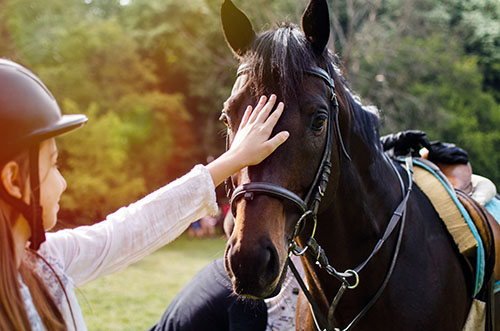Equine Nutrition for Varying Recovery Times
Sep 20, 2021

Recovery time for horses will depend on the level of exercise, conditioning and the amount of muscle fatigue that has occurred. In many situations, a horse can be fully recovered within 24 to 48 hours. However, it’s important to consider that eventing and elite show jumping horses have a heavy workload. Research shows it can take more than five days for these horses to fully recover. Consider the recovery for an individual who ran a 5K, half marathon or an Iron Man competition – the recovery times for these events will vary significantly.
Regarding proper equine nutrition, first ask yourself, “Am I conditioning my horse for the level of performance I expect? What is that level, and am I providing my horse the right fuel and nutrients to perform its best and to achieve full recovery?” After considering these questions, ensure your horse is fed the right nutritional balance with plenty of water and recovery time.
For more information on equine nutrition and horse muscle recovery, stop by your local Co-op or visit American Association of Equine Practitioners for information on general horse nutrition and exercise.
There’s also good information from the University of Minnesota Veterinary School on exertional rhabdomyolysis — it’s very informative to help you better understand what’s happening if you have a horse that’s tying up or cramping. You can also visit our equine nutrition page to learn more about the benefits of trace minerals for horses.
For more content like this, check out the latest issue of the Cooperator.
Regarding proper equine nutrition, first ask yourself, “Am I conditioning my horse for the level of performance I expect? What is that level, and am I providing my horse the right fuel and nutrients to perform its best and to achieve full recovery?” After considering these questions, ensure your horse is fed the right nutritional balance with plenty of water and recovery time.
For more information on equine nutrition and horse muscle recovery, stop by your local Co-op or visit American Association of Equine Practitioners for information on general horse nutrition and exercise.
There’s also good information from the University of Minnesota Veterinary School on exertional rhabdomyolysis — it’s very informative to help you better understand what’s happening if you have a horse that’s tying up or cramping. You can also visit our equine nutrition page to learn more about the benefits of trace minerals for horses.
For more content like this, check out the latest issue of the Cooperator.